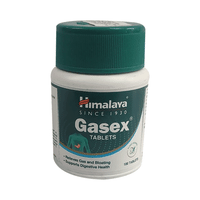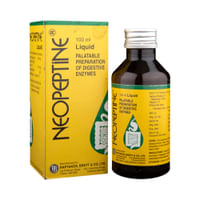Cefneda TM 1000mg/120mg Injection

Rs.445for 1 vial(s) (1 Injection each)
food interaction for Cefneda TM
alcohol interaction for Cefneda TM
pregnancy interaction for Cefneda TM
lactation interaction for Cefneda TM
food
alcohol
pregnancy
lactation
No interaction found/established
Consuming alcohol with Cefneda TM 1000mg/120mg Injection does not cause any harmful side effects.
SAFE
Cefneda TM 1000mg/120mg Injection is unsafe to use during pregnancy as there is definite evidence of risk to the developing baby. However, the doctor may rarely prescribe it in some life-threatening situations if the benefits are more than the potential risks. Please consult your doctor.
CONSULT YOUR DOCTOR
Cefneda TM 1000mg/120mg Injection is safe to use during breastfeeding. Human studies suggest that the drug does not pass into the breastmilk in a significant amount and is not harmful to the baby.
SAFE IF PRESCRIBED
SALT INFORMATION FOR Cefneda TM
Ceftazidime(1000mg)
Uses
Ceftazidime is used in the treatment of bacterial infections.
How it works
Ceftazidime is an antibiotic. It kills the bacteria by preventing them from forming the bacterial protective covering (cell wall) which is needed for them to survive.
Common side effects
Diarrhea, Nausea, Vomiting, Fever, Hypersensitivity, Injection site inflammation, Inflammation of vein, Abdominal pain, Candidiasis, Vaginal inflammation, Angioedema (swelling of deeper layers of skin), Anaphylactic reaction, Toxic epidermal necrolysis, Stevens-Johnson syndrome, Erythema multiforme, Pseudomembranous colitis, Interstitial nephritis, Acute renal failure
Tobramycin(120mg)
Uses
Tobramycin is used in the treatment of bacterial eye infections.
How it works
Tobramycin is an antibiotic. It stops bacterial growth by preventing synthesis of essential proteins required by bacteria to carry out vital functions.
Common side effects
Ototoxicity, Headache, Dizziness, Vomiting, Nausea, Diarrhea, Skin rash, Ringing in ear, Vertigo, Confusion, Disorientation, Lethargy, Exfoliative dermatitis, Itching, Increased aspartate aminotransferase, Increased alanine aminotransferase, Increased bilirubin in the blood, Decreased calcium level in blood, Decreased magnesium level in blood, Decreased potassium level in blood, Renal abnormalities, Fever, Voice change, Anemia (low number of red blood cells), Granulocytopenia, Low blood platelets, Discoloration of sputum, Respiratory tract infection, Muscle pain, Nasal polyps, Otitis media (infection of ear), Eye toxicity, Hypersensitivity, Blurred vision, Stinging in the eyes, Allergic reaction
SUBSTITUTES FOR Cefneda TM
16 Substitutes
16 Substitutes
Sorted By
 Rs. 318save 31% more per Injection
Rs. 318save 31% more per Injection Rs. 462.75pay 1% more per Injection
Rs. 462.75pay 1% more per Injection Rs. 569pay 24% more per Injection
Rs. 569pay 24% more per Injection- Tobracef 1000 mg/120 mg Injection(10 ml Injection in vial)Venus Remedies LtdRs. 52.40/ml of Injection
 Rs. 540save 88% more per ml of Injection
Rs. 540save 88% more per ml of Injection  Rs. 415save 10% more per Injection
Rs. 415save 10% more per Injection
Expert advice FOR Cefneda TM
- Your doctor has prescribed Ceftazidime to cure your infection and improve your symptoms.
- Do not skip any doses and finish the full course of treatment even if you feel better. Stopping it early may make the infection harder to treat.
- Take it with food to avoid an upset stomach.
- Diarrhea may occur as a side effect but should stop when your course is complete. Inform your doctor if it does not stop or if you find blood in your stools.
- Avoid consuming alcohol while taking Ceftazidime as it may cause increased side effects.
- Discontinue Ceftazidime and inform your doctor immediately if you get a rash, itchy skin, swelling of face and mouth, or have difficulty in breathing.
Frequently asked questions FOR Cefneda TM
Ceftazidime
Q. What organisms does Ceftazidime cover?
Ceftazidime is active against pseudomonas, anaerobes, and staphylococcus bacteria. It may not be effective against methicillin- resistant Staphylococcus aureus (MRSA).
Q. How is Ceftazidime administered?
Ceftazidime is administered under the supervision of a trained healthcare professional or a doctor and should not be self administered. The dose will depend on the condition you are being treated for and will be decided by your doctor. Follow your doctor’s instructions carefully to get maximum benefit from Ceftazidime.
Q. Can the use of Ceftazidime cause diarrhea?
Yes, the use of Ceftazidime can cause diarrhea. Ceftazidime is an antibiotic which kills the harmful bacteria. However, it also affects the helpful bacteria in your stomach or intestine and causes diarrhea. If diarrhea persists, talk to your doctor about it.
Tobramycin
Q. Does Tobramycin have a steroid in it?
No, Tobramycin alone does not have steroids in it. It is an antibiotic, which means that it is effective against bacterial infections. It is not effective against viral or fungal infections and hence should not be used in these kinds of infections. Tobramycin may be combined with steroids such as dexamethasone.
Q. Does Tobramycin have a steroid in it?
No, Tobramycin alone does not have steroids in it. It is an antibiotic, which means that it is effective against bacterial infections. It is not effective against viral or fungal infections and hence should not be used in these kinds of infections. Tobramycin may be combined with steroids such as dexamethasone.
Q. What bacteria does Tobramycin kill?
Tobramycin is effective against a wide range of bacteria. Tobramycin must be used only against susceptible bacteria. A whole gamut of bacteria that can be killed by Tobramycin includes S. Aureus and S. epidermidis, some species of Streptococci, Pseudomonas aeruginosa, Escherichia coli, Klebsiella pneumoniae, Enterobacter aerogenes, Proteus mirabilis, Morganella morganii, most Proteus vulgaris strains, Haemophilus influenza, and H. aegyptius, Moraxella lacunata, Acinetobacter calcoaceticus, and some Neisseria species. Your doctor will evaluate whether this medicine is suitable for your condition.






















